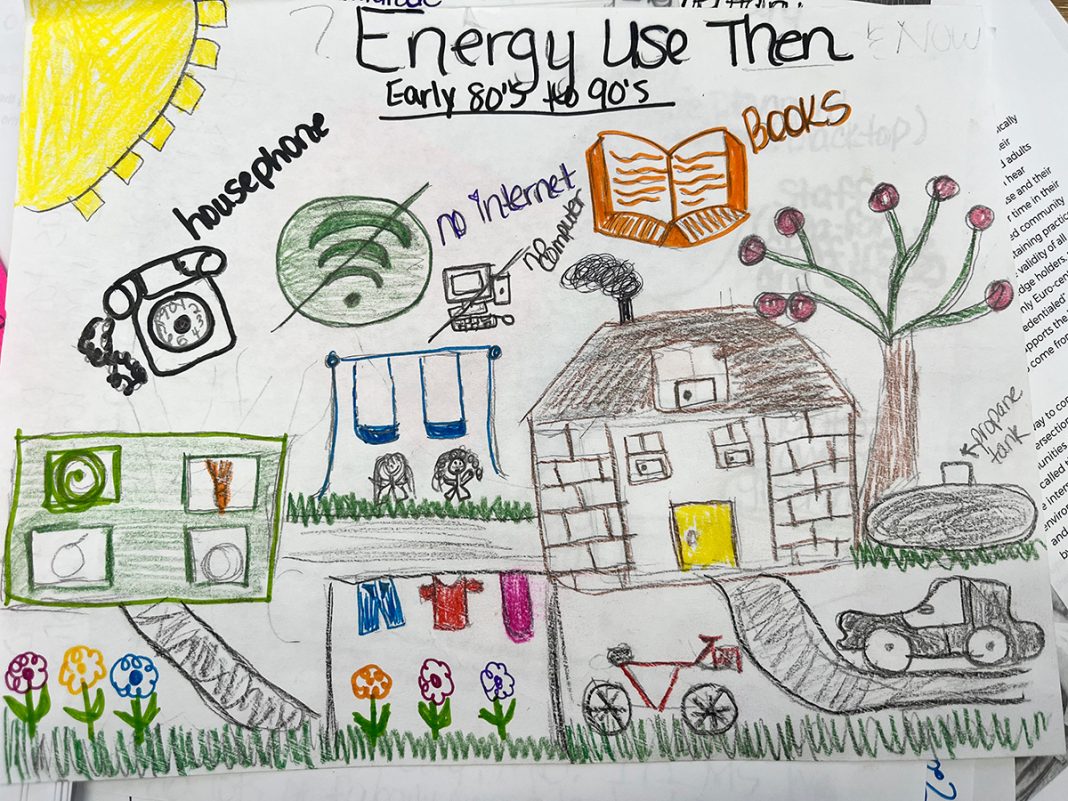Energy permeates all areas of life. Our energy choices are tied to political and social systems that impact school equity issues such as health and academic performance; our values, beliefs, and identity groups affect how we approach energy’s connection to the climate crisis; how we communicate about energy influences our perspectives on the history of energy use and where we want to go in the future.
Climate Generation saw a need for a curriculum that explored the complexity and intersectionality of energy in our lives (especially as it relates to climate change). In 2023 we updated our existing Experience Energy curriculum for grades 3-8 to more deeply reflect this.
We hadn’t heard of a curriculum that approached energy and climate change in quite this way before, and felt curious about how educators and students would respond. So in the 2023-2024 school year, we launched a pilot program to evaluate the usability and efficacy of Experience Energy. We extend our gratitude to the educators who participated in the pilot program and provided their case studies to share with our community. We hope you find their stories useful as you consider using Experience Energy with your learners!
About Experience Energy
The updated Experience Energy curriculum for grades 3-8 now features new interdisciplinary activities, more current data, and stronger connections between energy systems and climate justice. The curriculum leans heavily on science and social studies topics, supporting NGSS and the C3 Framework for Social Studies. In addition, it uplifts socioemotional learning in several ways, having students reflect on their personal values and practice coping strategies as they investigate emotionally charged topics. The curriculum supports social justice standards and encourages students to think critically about the connections between energy access, decision making, and their communities.
In this 6-lesson curriculum, students:
- Define energy
- Investigate energy use in their community
- Determine how energy use connects to climate change
- Perform an energy audit on their school to think about energy conservation and efficiency
- Explore various climate solutions related to energy
- Develop and implement a climate action project at school!
Although Experience Energy is designed to flow as a full unit, the curriculum can easily be broken up into different activities, lesson sets, or units depending on your subject area and how much time you have.
“This so closely ties to my curriculum…things just complemented and filled gaps so well.”
-Case Study Educator
The Pilot Project

We wanted to ensure that the new curriculum met educators’ needs and expectations and provided engaging, relevant content for students. To do so, we requested the help of five educators across the U.S. to test out the curriculum. The educators spent five months engaging as a learning group, meeting three times throughout the school year to support one another’s climate change teaching journey. During the first meeting, educators introduced themselves and learned about the activities from the curriculum that they could use with their students. We encouraged educators to complete the activities in any order and at any point during the school year to meet their learning objectives. In the subsequent two meetings, educators shared their teaching experiences, questions, and advice with one another.
Through this collaborative curriculum evaluation, educators developed brief individual case studies detailing stories, teaching tips, and photos of how the Experience Energy curriculum might be adapted and used in the classroom. We hope that these stories can help you better assess whether Experience Energy is right for your students, and give you ideas for integrating it into your own curriculum!
“Students got the most out of the carbon cycle game, trusted adult interviews, and values activity. Many students had never thought of personal values–I still have them posted in my room and we often look up to see how our values connect to what we’re doing.”
-Case Study Educator
Case Studies
Below are five case studies from educators with unique geographic locations, grade levels, and approaches to teaching Experience Energy. Consider reading all five, or choose the case studies that best align with your educational setting! We recommend downloading a free copy of Experience Energy to familiarize yourself with the activities.





Have questions or want to let us know what you thought of the Experience Energy case studies? Reach out to Marie Fargo: marie@climategen.org.


